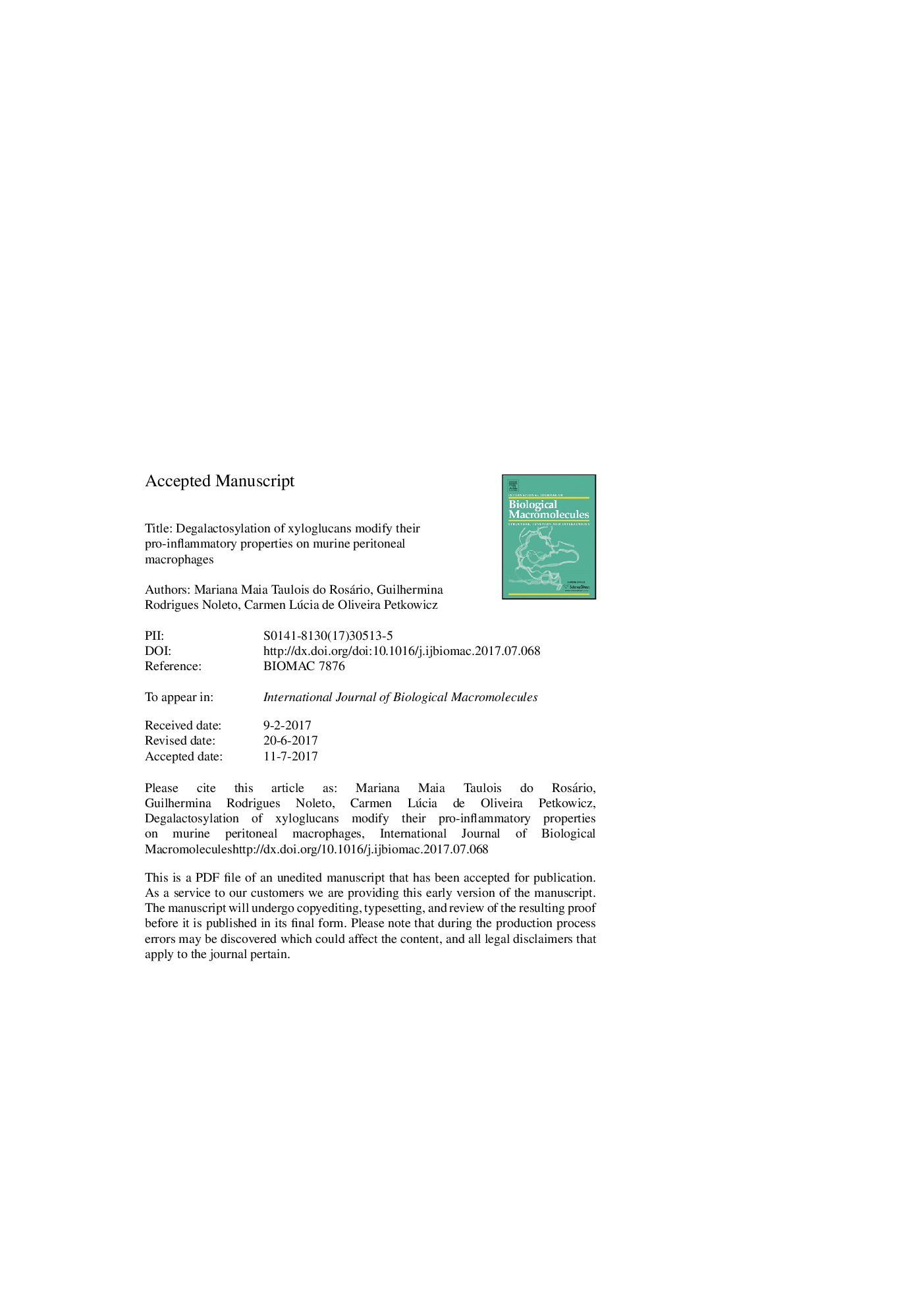| Article ID | Journal | Published Year | Pages | File Type |
|---|---|---|---|---|
| 8329515 | International Journal of Biological Macromolecules | 2017 | 25 Pages |
Abstract
Considering the potential applications of partially degalactosylated xyloglucans as a drug delivery vehicle and reconstruction of tissues, the aim of this study was to investigate whether degalactosylated xyloglucans are immunologically active. The effects of the degalactosylated xyloglucan from seeds of Copaifera langsdorffii (XGCd), Hymenaea courbaril (XGJd), and Tamarindus indica (XGTd) on murine peritoneal macrophages in vitro were evaluated. XGCd, XGJd, and XGTd stimulated NO production in a dose-dependent manner reaching â¼280% for XGTd at 50 μg/mL. Regarding cytokines production, XGJd at 50 μg/mL increased IL-1β level by â¼100% and XGCd (10 μg/mL) enhanced IL-6 level by 40%. At 10 μg/mL, XGTd increased TNF- α and IL-1β levels by 104 and 2370%, respectively, as compared to the control group. For IL-6, XGTd enhanced this cytokine production by 80% at all concentrations tested. XGTd exhibited the most intensive effects on the production of pro-inflammatory mediators by peritoneal macrophages. All degalactosylated xyloglucans evaluated showed not to be biologically inert. Thus, this finding is relevant for groups that are investigating the use of degalactosylated xyloglucan from T. indica for drug delivery and reconstruction of tissues. The effects observed could contribute to potentiate the immune system against infections or toxicity to tumor cells.
Related Topics
Life Sciences
Biochemistry, Genetics and Molecular Biology
Biochemistry
Authors
Mariana Maia Taulois do Rosário, Guilhermina Rodrigues Noleto, Carmen Lúcia de Oliveira Petkowicz,
